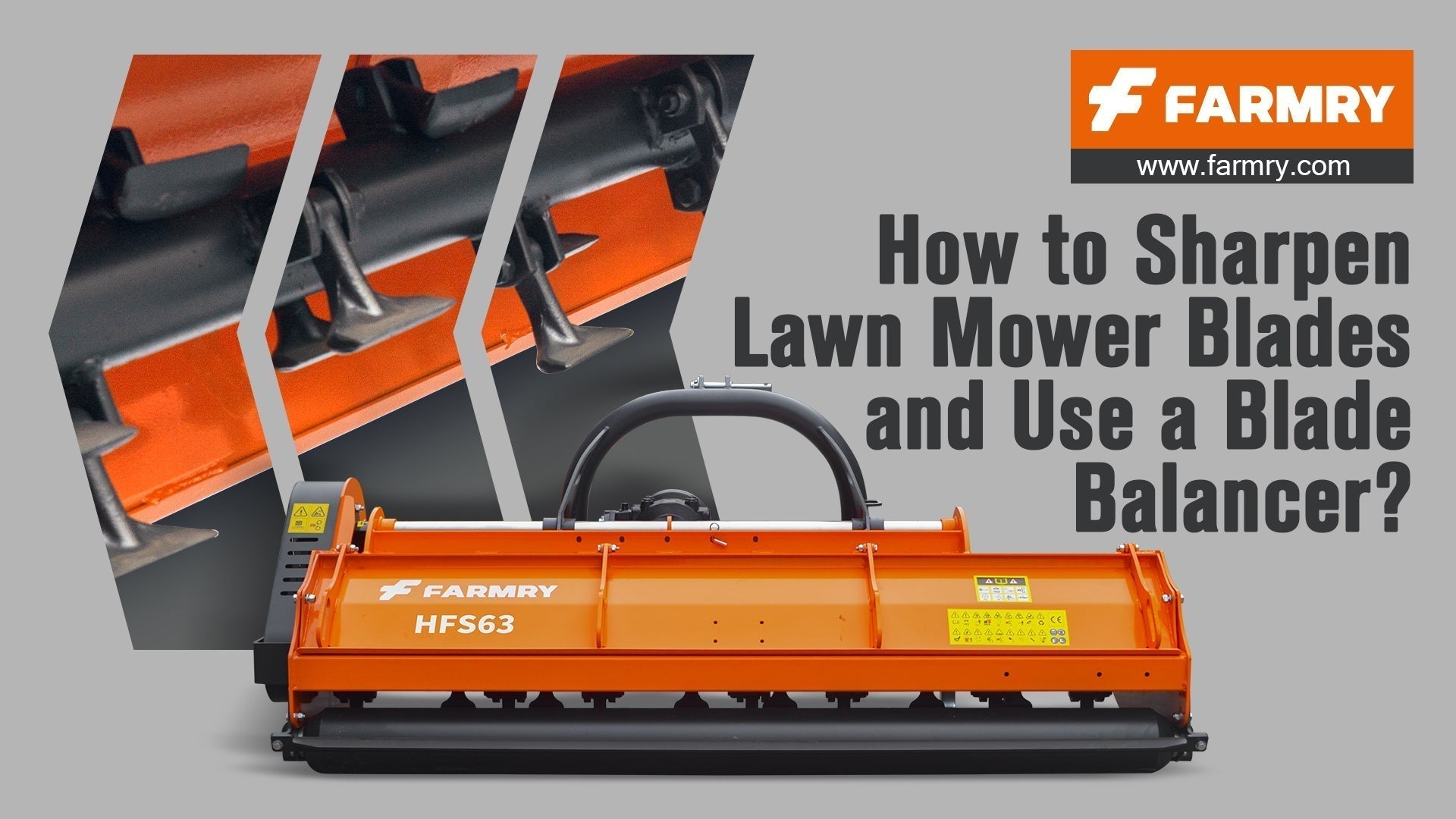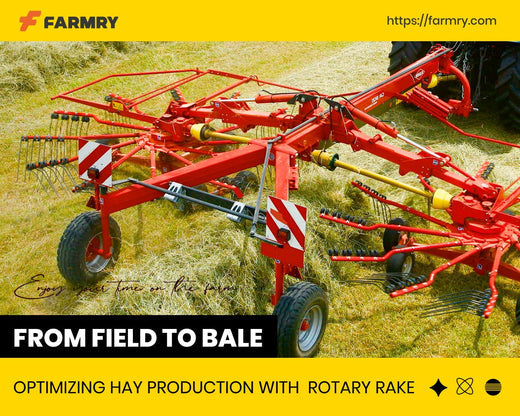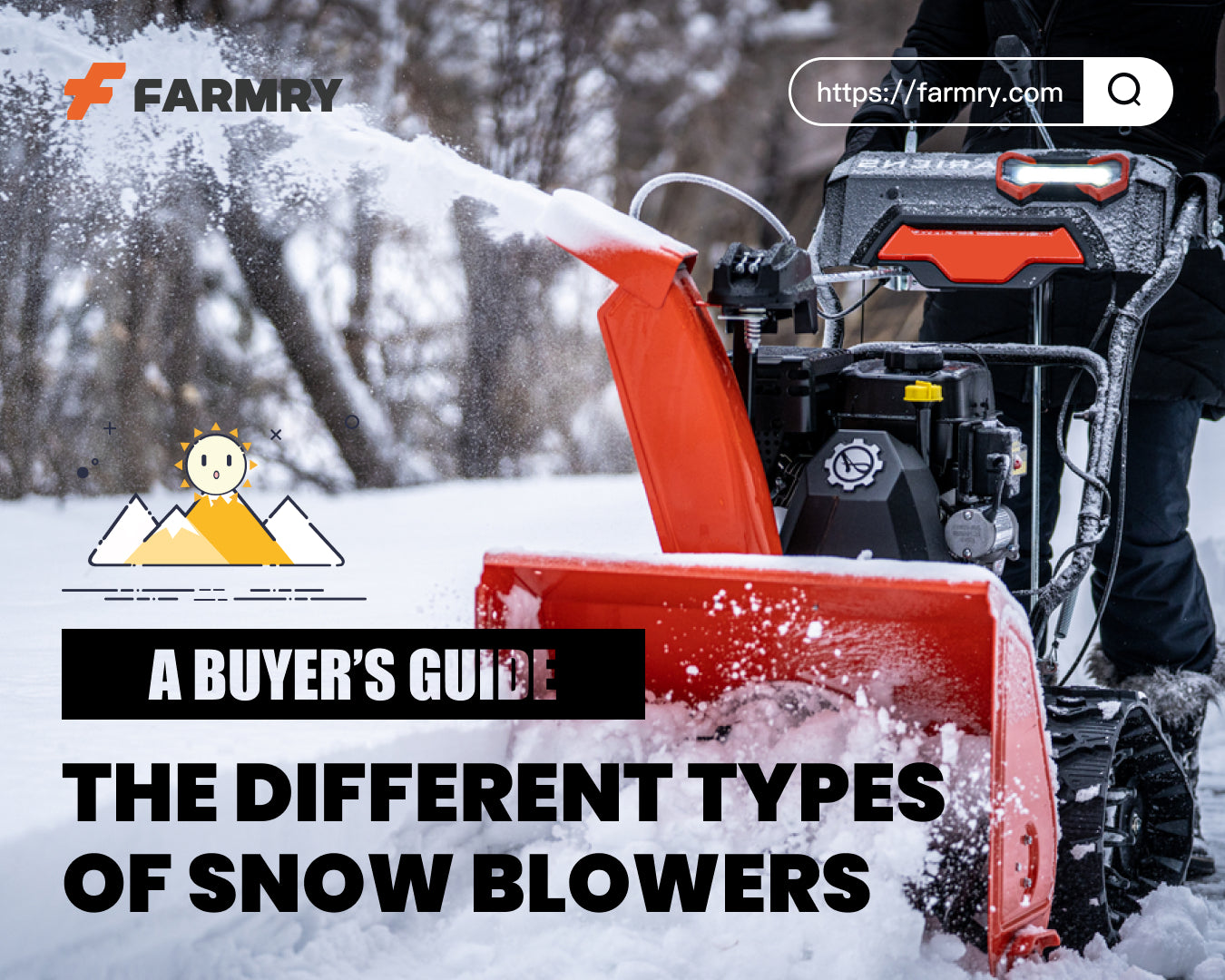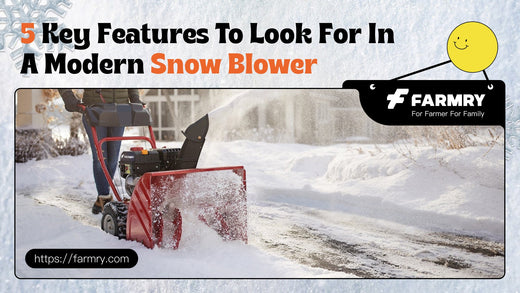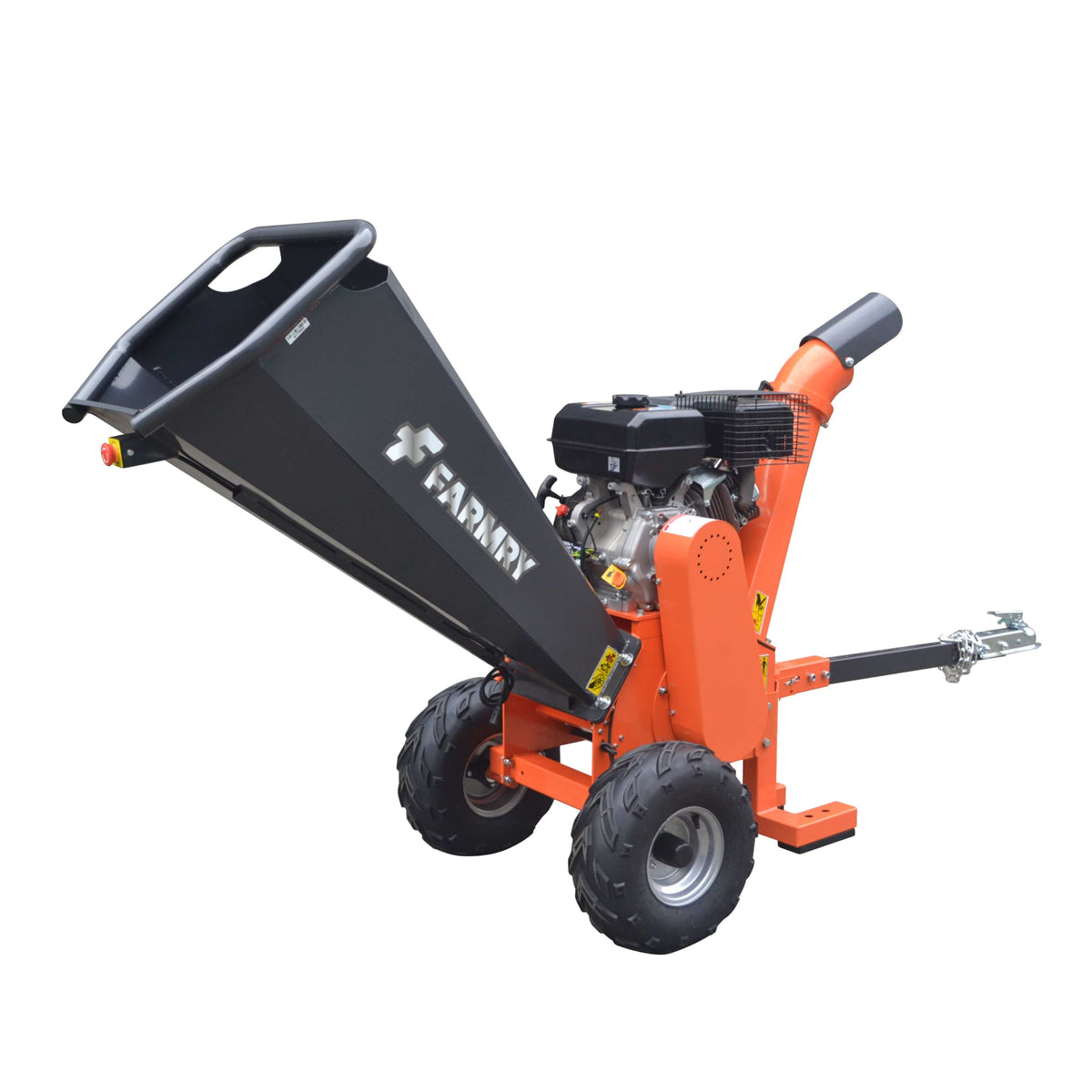Lawn Trailer Hitch Guide: Ball, Pintle, or 3-Point?
Ball vs Pintle vs 3-Point Hitch: Lawn Trailer Connection Guide
When you're towing a lawn mower trailer, it’s not just about hooking up and heading out—it’s about safety, performance, and using the right hitch for your equipment. Whether you’re tending a small garden, maintaining several acres, or managing a work site with a tractor, choosing the right hitch system helps avoid frustration, mechanical issues, and even damage.
In this guide, we’ll walk you through the main hitch types, explain how they relate to lawnmowers, and help you figure out what works best for your terrain, tools, and towing setup.
Understanding Hitch Types for Lawn Mower Trailers
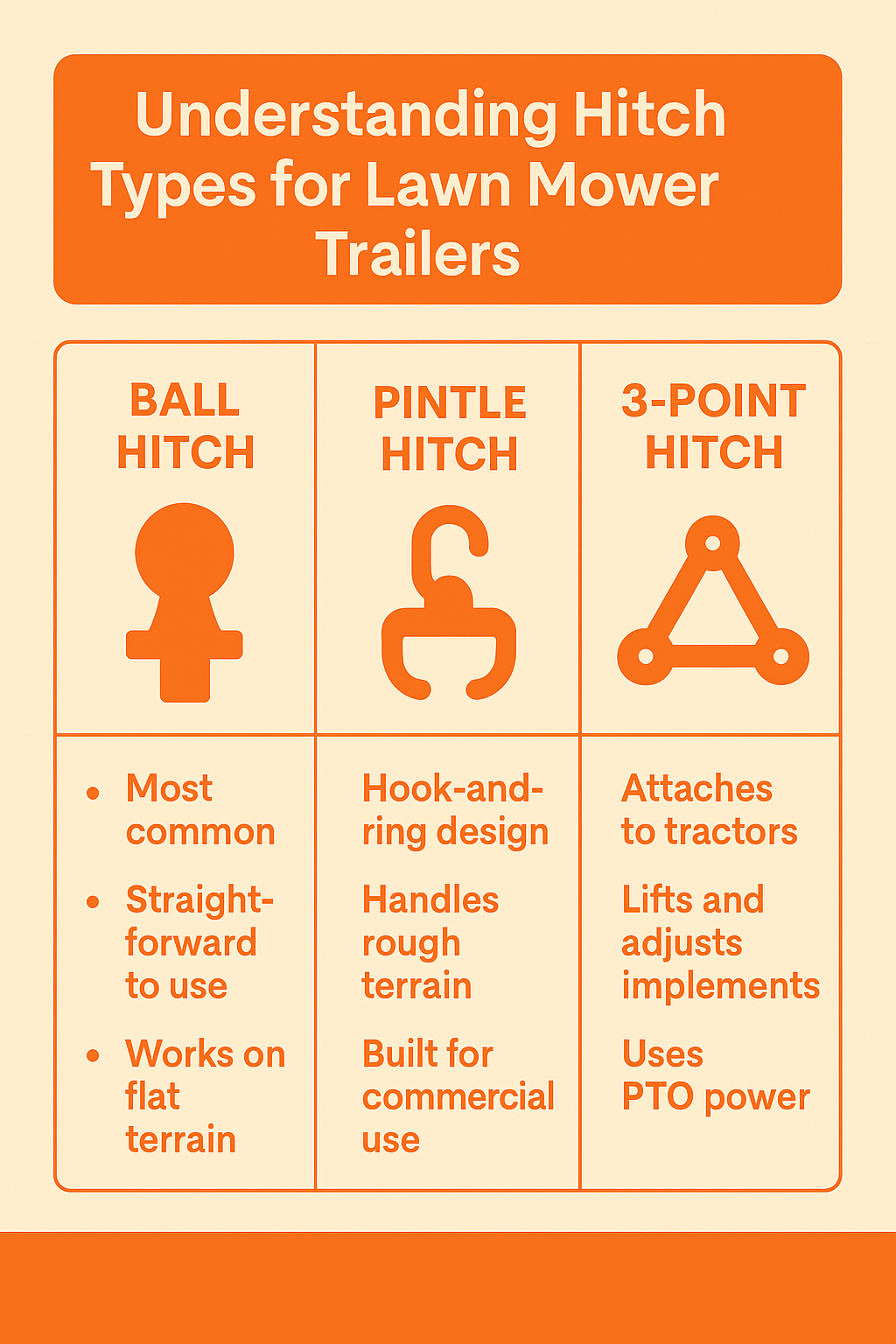
1. Ball Hitch
This is the most common connection used on basic lawn mower trailers. It’s found on utility trailers, dump carts, and tow-behind sprayers. Ball hitches are best for light-duty towing on even ground and are compatible with lawnmowers, ATVs, and small tractors. Just remember to match the ball size to your trailer’s coupler—usually 1-7/8" or 2".
Best for: Residential use, tool hauling, dump carts on smooth terrain.
2. Pintle Hitch
A pintle hitch connects a hook to a lunette ring. It's heavy-duty and built for commercial or off-road use. If you're dealing with bumpy land or hauling heavy equipment where strength matters more than ease of use, pintle hitches are the right choice.
Best for: Industrial or rugged terrain towing, where flexibility and durability are critical.
3. 3-Point Hitch
Found on compact and full-sized tractors, this hitch system connects directly to rear implements. A 3-point hitch isn’t for towing trailers—it’s for attaching tools like flail mowers, mulching mowers, and tillers. It provides vertical control, lifting/lowering power, and efficient PTO transfer.
Best for: Heavy-duty attachments like Farmry’s flail mowers or soil tillers that require lift and rotation rather than towing.
Trailers, Couplers & Compatibility: What to Know
Most trailers for lawn mowers come with a ball or pin-style coupler. These are great for hauling yard debris, tools, mulch, or grass clippings. However, if you're running deck-mounted or 3-point designed implements, you'll be attaching equipment directly—no trailer tongue or coupler needed.
So, before you buy that new hitch or mower, ask:
-
Is the tool being towed or mounted?
-
Am I using a tractor, riding mower, or pickup?
-
Will I be mowing, mulching, hauling, or all three?
What Is a Mulching Mower and Why It Matters
If you’ve ever seen a mower that leaves behind fine, even bits of clippings instead of long strips or heavy clumps, you’ve seen a mulching mower in action. These mowers use a specific mower blade and inner design to finely chop grass clippings and push them back into the lawn through a discharge chute.
Farmry flail mowers often double as mulchers, especially when equipped with hammer blades. They’re excellent for dealing with tall weeds, overgrown pastures, and brush. Unlike bagging or side-discharge mowers, a mulching system returns nutrients to the soil—making your lawn greener, thicker, and healthier over time.
Choosing the Right Hitch Based on Your Needs
|
Situation |
Recommended Hitch |
Why It Works |
|---|---|---|
|
Small yard work |
Ball or pin |
Simple to attach trailers, carts, sprayers |
|
Towing mulch or garden waste |
Ball |
Perfect for lawn mower trailer setups |
|
Using a Farmry flail or mulching mower |
3-Point Hitch |
Implements are designed to mount, not tow |
|
Rugged off-road transport |
Pintle |
Withstands heavy bouncing and turns |
Farmry Flail Mowers: Hitch, Terrain, and Performance
Farmry’s flail mowers are designed with a 3-point hitch system and built to work with your tractor. Unlike tow-behind lawnmower attachments, these models connect directly, receiving power through the PTO.
They’re ideal for:
-
Cutting wet, overgrown areas
-
Maintaining orchards, ditches, and long driveways
-
Reducing brush, saplings, and weeds
-
Creating finer mulch with fewer visible clumps
If you’ve struggled with mowing thick grass or uneven terrain using a tow-behind setup, upgrading to a mounted flail mower can change the game.
FAQs
What is a mulching mower?
A mulching mower finely chops grass clippings and redistributes them onto your lawn, enriching the soil and reducing waste.
Can I use a 3-point hitch with a pickup truck?
No. 3-point hitches are built for tractors. Trucks require ball or pintle hitches.
What size hitch ball do I need for a lawn mower trailer?
Most use a 1-7/8" or 2" ball. Always check your trailer coupler for proper fit.
Can I tow a trailer with a flail mower?
Not directly. Flail mowers (like those from Farmry) are not designed for towing but for attachment via 3-point hitch systems.
Is it safe to mow when the grass is wet?
Flail mowers handle wet conditions better than typical rotary blades. Still, avoid deep water or steep slopes to prevent damage or slippage.
Picking the right trailer hitch is more than a small decision—it directly impacts your safety, efficiency, and ability to get the job done right. From lightweight ball hitches to heavy-duty 3-point systems, each connection has its purpose.
If you're focused on mowing, clearing weeds, or managing property with a tractor, consider a solution like Farmry’s flail or mulching mower lineup. They’re built for control, durability, and cleaner, greener results—no matter the course or condition of your land.
Want help matching a flail mower to your tractor model? I can help with that too.


